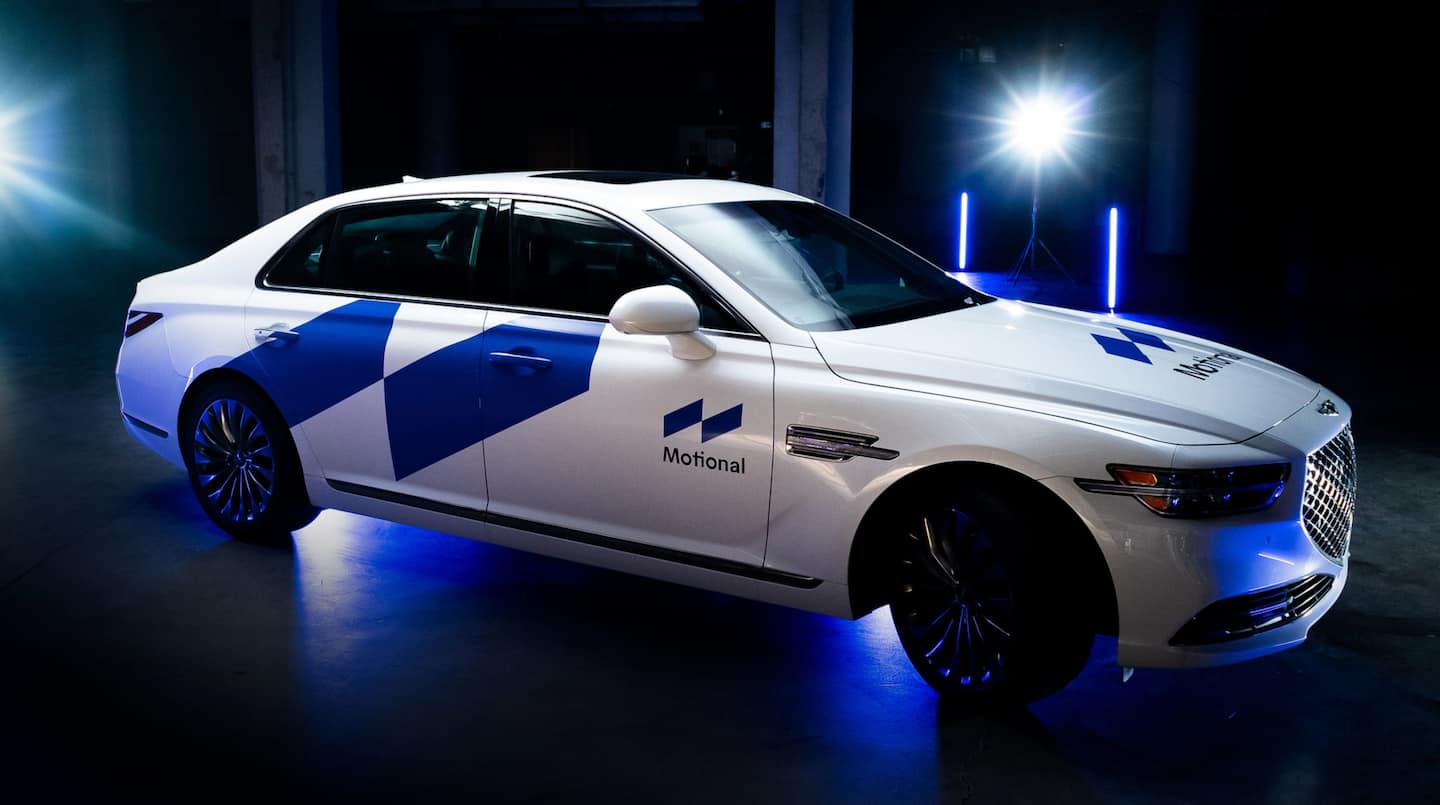To the list of places testing driverless cars, add Las Vegas

But first it needed to show that its cars, equipped with radar and sensor equipment, could safely navigate intersections, turns and interactions with other vehicles on the road. Motional commissioned TÜV SÜD, an international technology testing house, to assess how its cars performed during these situations.
Karl Iagnemma, president and CEO of Motional, said Las Vegas residents encountering the test cars on the street would have had no reason to know they were witnessing a driverless vehicle. “To an outsider, it was simply another car, correctly following the rules of the road,” he said.
While autonomous cars may have limitations, proponents of self-driving mobility options say the technology makes roads safer. The idea is that automated cars could respond better to risky road conditions, eliminate human driver error and drive down congestion by improving traffic flow. In a pandemic-conscious world, driverless cars are touted as a novel approach to social distancing.
“We know driverless technology can dramatically reduce human error on our roads and save millions of lives — but for this potential to become reality, you must trust and adopt it,” Iagnemma said.
Motional is a $4 billion effort backed by Hyundai meant to develop and commercialize “Level 4” cars — autonomous vehicles that perform all driving tasks. Hyundai announced the company’s formation in March 2020. The automaker, along with its affiliate Kia Motors, collectively contributed $1.6 billion in cash and $400 million in research to launch the company.
Dublin-based Aptiv contributes its autonomous driving technology and owns 50 percent of the venture.
Motional did not say how many cars had participated in the Las Vegas tests but said in its statement that “multiple” autonomous vehicles had been used on routes that included public roads and closed courses. During the tests, the vehicles sensed and responded to human-driven vehicles, cyclists and pedestrians, the company said. Some tests were completed with a safety operator in the car; others were completed without one.
Germany’s TÜV SÜD ultimately endorsed Motional’s vehicles as long as there’s a safety operator in the passenger seat. Nevada greenlit the project in November.
Outside of Nevada, Motional operates vehicles in Pittsburgh and Santa Monica, Calif. The start-up is headquartered in Boston.
The autonomous mobility company is the latest in a growing list of firms to pilot passenger cars on public roads without drivers. Last month, Chinese search giant Baidu received a permit from California to test vehicles without a person behind the wheel. It was the sixth company to do so in the state. Last year, Walmart partnered with the AI firm Gatik to pilot autonomous fulfillment vehicles in Arkansas. The operation is expanding this year.
Alphabet-owned Waymo and General Motors’ Cruise have kicked off similar self-driving ventures. Testing autonomous cars on public roads isn’t fail-proof. In fact, a safety driver riding in one of Uber’s autonomous vehicles struck and killed a pedestrian in Tempe, Ariz., in 2018. A National Transportation Safety Board investigation found that human error was mostly to blame. The operator was charged with negligent homicide.
Motional says its cars have navigated “thousands of challenging scenarios” and have logged “zero at-fault incidents.” The firm has plans for a widespread commercial ride-sharing experience where people can be picked up and dropped off by autonomous cars. Motional plans to launch that type of service in multiple markets in 2023 through a partnership with Lyft.
In the meantime, it’s collaborating with the ride-hailing service Via on a smaller-scale deployment of shared robotaxis available to the public. The launch market hasn’t been announced, but Motional expects it to begin later this year.






